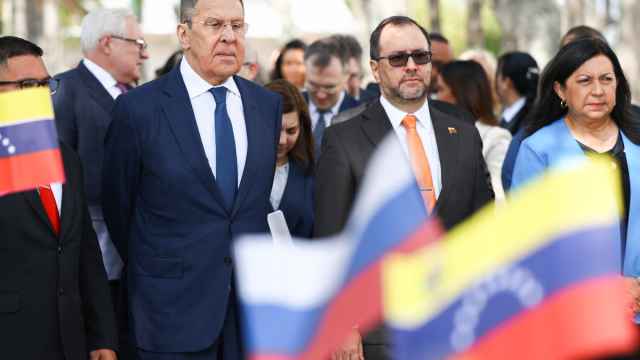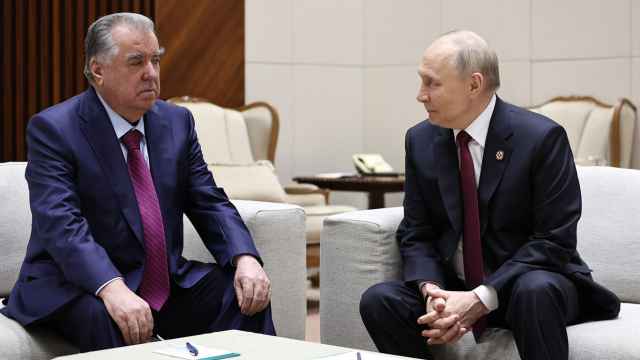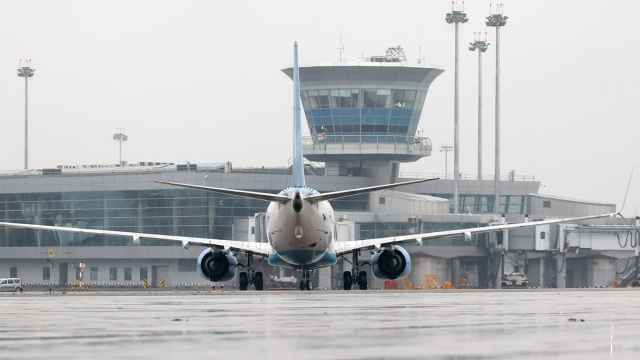It seems that nobody has learned a thing from the 2008 economic crisis. Now, three years later, government officials are repeating the same optimistic rubbish without realizing that this time nobody believes them and that their attempts to assure investors and the public are only irritating and offending them.
Captains of industry and politicians have been making ridiculous statements such as “The crisis won’t hit Russia” and “It doesn’t concern us.”
These lines may have been worked during the 2008 crisis. After all, we tend to forget or minimize the cruel lessons of capitalism, although they have burned us many times over the past 160 years.
When the New York Stock Exchange plummeted in 2008, Russians were convinced that it would not affect this country, saying, “What possible connection could there be between those financial sharks on Wall Street and the ordinary people of Russia?” Unfortunately, there was a very direct link.
The government’s anti-crisis measures are not only incapable of mitigating the crisis, but they could actually prolong and exacerbate it, as we are now witnessing.
But optimists proclaiming bright prospects for the Russian and global economies are in some ways even more dangerous than officials with no idea of what to do. The former are similar to a ship’s captain who predicts clear sailing even as his ship heads directly for an iceberg. The latter are like the ship captain who tries to comfort passengers by saying the huge iceberg that the ship is headed for is not really an iceberg at all, and there is no need to take emergency measures to save the ship and passengers.
Such anti-crisis measures are inevitably followed by a depreciation of the ruble and rise in the dollar, bank failures, factory shutdowns and layoffs, a shrinking consumer market and increased budget deficits. Worse, the only remedy the government has been able to muster in recent years is to pump money into “too-big-to-fail” national champions, which inevitably leads to more corruption. The more money squandered this way, the bigger the overall problem becomes.
This can be called the “plumber’s dilemma.” When pipes are rusted out, there are only two options. Either you turn up the pressure in the hope that at least some water will reach the end user, despite the fact that most of the water is lost through leaks and cracks in the pipes. Or you can turn down the pressure to cut your losses, knowing that little water will reach the user. Either way you lose big.
The government played with money in the same way, pumping more or less into the pipeline as it saw fit. But until leaders are ready to completely “change the pipes,” nothing will improve. The problem is not fiscal policy that needs revamping but reforming government institutions. Meanwhile, the state must build factories, construct new roads and revive the country’s education system.
It is time to create a true social state to protect Russians’ interests, particularly those hit the hardest by the crisis. But the biggest obstacle to achieving this goal is the elite’s interests. If the oligarchs controlling the country’s wealth were to allow politicians to initiate true economic or political reform and create a social state, they would be weakening their monopoly control on power and wealth. It would be difficult to find any oligarchs willing to do this voluntarily.
Boris Kagarlitsky is director of the Institute of Globalization Studies.
A Message from The Moscow Times:
Dear readers,
We are facing unprecedented challenges. Russia's Prosecutor General's Office has designated The Moscow Times as an "undesirable" organization, criminalizing our work and putting our staff at risk of prosecution. This follows our earlier unjust labeling as a "foreign agent."
These actions are direct attempts to silence independent journalism in Russia. The authorities claim our work "discredits the decisions of the Russian leadership." We see things differently: we strive to provide accurate, unbiased reporting on Russia.
We, the journalists of The Moscow Times, refuse to be silenced. But to continue our work, we need your help.
Your support, no matter how small, makes a world of difference. If you can, please support us monthly starting from just $2. It's quick to set up, and every contribution makes a significant impact.
By supporting The Moscow Times, you're defending open, independent journalism in the face of repression. Thank you for standing with us.
Remind me later.





